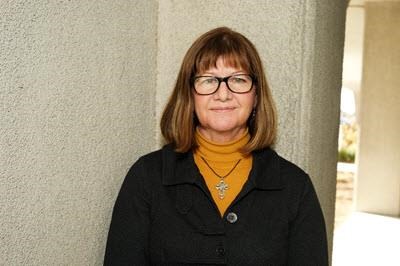Jackie Kelly-Pemberton recovered from breast cancer earlier this year
By Diego Flammini
Staff Writer
Farms.com
With October recognized as Breast Cancer Awareness Month, Farms.com connected with a breast cancer survivor in the Ontario ag community.
As a beef and cash crop producer in Dundas County, Jackie Kelly-Pemberton is used to facing challenges head on.
And that’s the mentality she channeled when she received a breast cancer diagnosis in 2020.
“The first thoughts that went through my mind are ‘what’s next?’ and ‘what’s the plan of attack?’” she told Farms.com. “Just like the planting and growing seasons. And like farming, there were hiccups in my treatment that required changes, but I came through it very well.”
Kelly-Pemberton’s family has a history of breast cancer as her mother received a diagnosis in her 50s.
Between 5 and 10 per cent of breast cancer cases are believed to be hereditary, the Canadian Breast Cancer Network says.
Understanding that, she placed an emphasis on visits with doctors.
“In January 2020 I had a routine mammogram done,” Kelly-Pemberton said. “And it did not depict the lump that I had. Even though you have a mammogram done, you should always self-exam.”

Jackie Kelly-Pemberton.
OFA photo
She discovered the lump in July while doing a self-exam.
Further visits with her doctors, an ultrasound and a biopsy revealed she had triple-negative breast cancer.
“My world changed right away,” she said. “I read a lot and kept asking my oncologist what the survival rate was. He just looked at me and said ‘curable.’”
Triple-negative is considered aggressive and accounts for between 10 and 15 per cent of all breast cancers.
Most breast cancers have receptors for estrogen or progesterone. Triple-negative has none.
Kelly-Pemberton’s doctors started her on neoadjuvant chemotherapy, which is designed to shrink the tumour before starting other treatments.
“That started around the first week of October and went into February (2021),” she said. “I’m very fortunate that the chemo did exactly what it was supposed to do. In my case it shrunk to what doctors called a ‘non-mass’ which means you could no longer feel a lump.”
After about a month of recovery from chemo, Kelly-Pemberton had surgery.
Because the tumour had shrunk so much, surgeons performed a lumpectomy to remove the cancerous breast tissue. This is different than a mastectomy, which results in an entire breast removal.
After another month to recover from the surgery, Kelly-Pemberton started more chemotherapy.
“Every day, five days a week for three weeks,” she said.
Her treatments and recovery continued until she received positive news from her doctors.
“I’m cancer-free as of May 25 of this year,” she said. “I felt elated.”
This health journey took place during the COVID-19 pandemic.
Meaning it was a challenge Kelly-Pemberton had to tackle alone for the most part.
“My husband couldn’t come with me, so I received the diagnosis alone,” she said. “The support system for cancer patients was completely turned upside down. At one appointment I had my sister on speaker phone from the car just so I had someone with me.”
But she wasn’t alone.
Kelly-Pemberton serves as the Zone 11 director on the Ontario Federation of Agriculture board.
And the support from her fellow board members helped her get through some difficult times in her journey.
“Once the board knew I was having chemo, the first (virtual) board meeting we had, everyone was wearing pink shirts,” she said. “They were with me every step of the way and helped me get up in the morning to go have board meetings and remain engaged.”